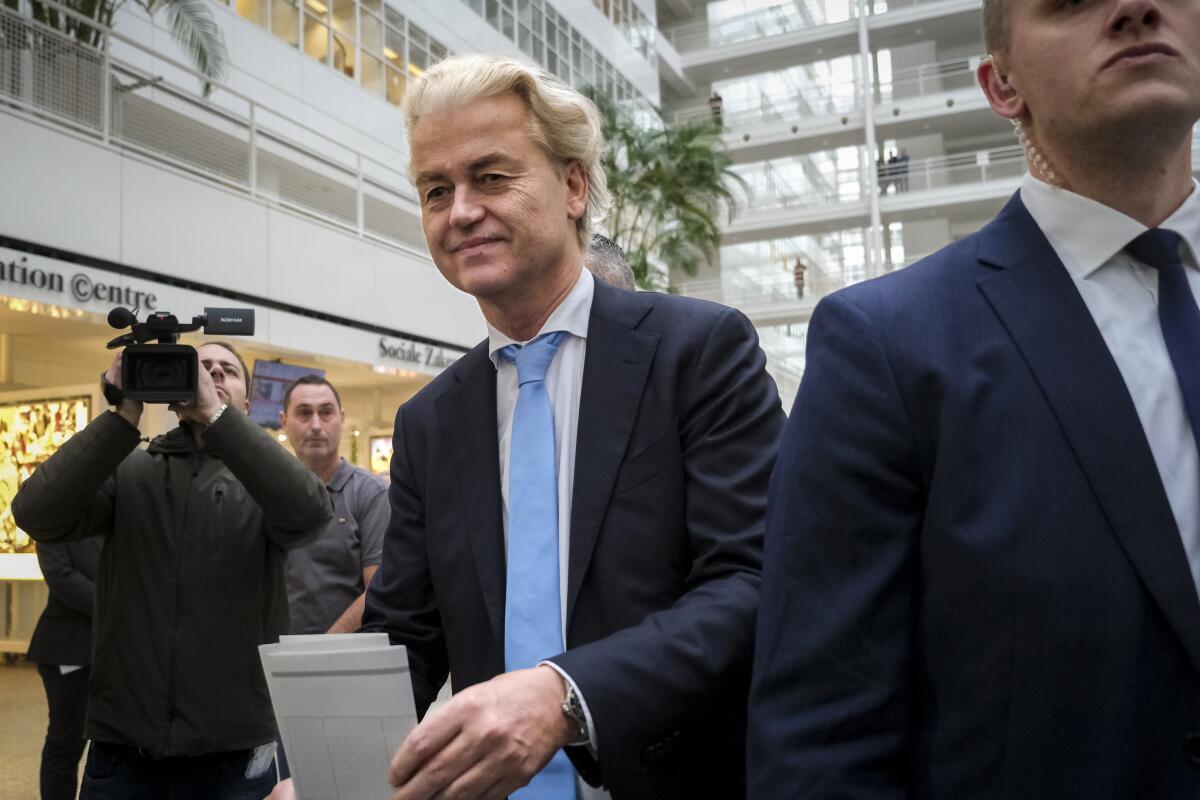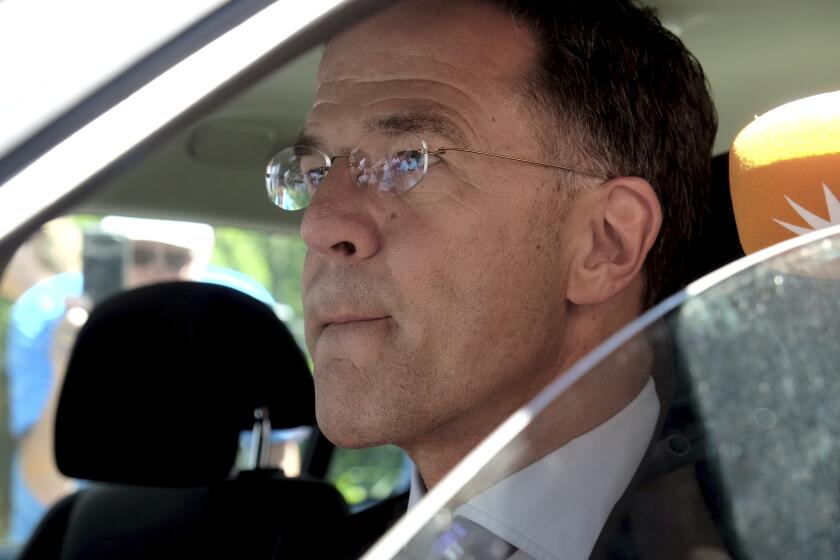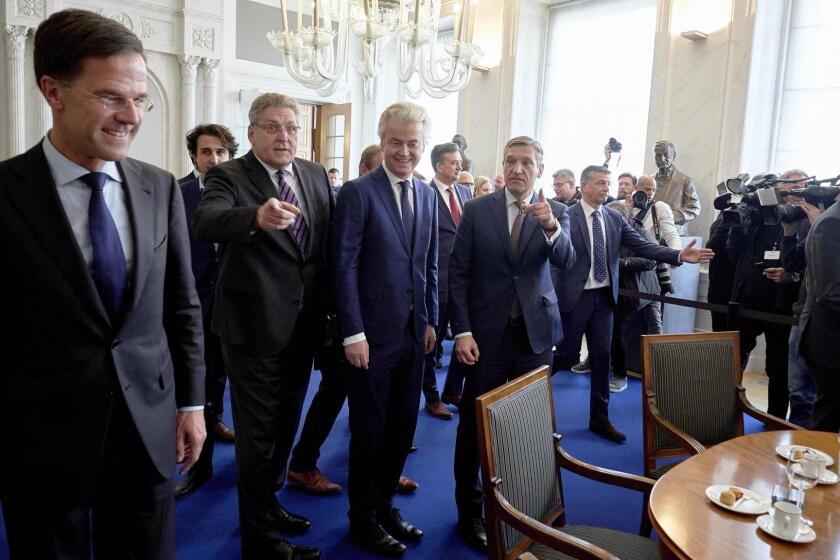Exit poll says Dutch anti-Islam populist wins most votes with a landslide margin

- Share via
THE HAGUE, Netherlands — The far-right and anti-Islam populist Geert Wilders was headed for a landslide parliamentary election victory Wednesday in one of the biggest political upsets in Dutch politics since World War II, and one that is bound to send shock waves through Europe.
The result puts him in line to lead talks to form a new ruling coalition and possibly become the country’s prime minister at a time of political upheaval through much of Europe.
The exit poll published by the national broadcaster NOS said that Wilders’ Party for Freedom won 35 seats in the 150-seat lower house, more than double the 17 he won at the last election.
“I had to pinch my arm,” he said.
“Voters said ‘we are sick of it. Sick to our stomachs,’” a jubilant Wilders said, adding he was now on a mission to end the “asylum tsunami,” referring to the migration issue that came to dominate the campaign.
He also called on other parties to constructively engage in coalition talks.
The closest party to his was an alliance of the center-left Labor Party and Green Left, which was forecast to win 26 seats.
Dutch Prime Minister Mark Rutte has visited the king to hand in the resignation of his four-party coalition, setting the deeply divided Netherlands on track for a general election later this year.
Wilders’ election program includes calls for a referendum on the Netherlands leaving the European Union, a total halt to accepting asylum seekers and migrant pushbacks at the Dutch borders.
It also advocates the “de-Islamization” of the Netherlands, although he has been milder about Islam during this election campaign than in the past.
“The Dutch will be No. 1 again,” Wilders said. “The people must get their nation back.”
But the lawmaker, who has in the past been labeled a Dutch version of Donald Trump, first would have to form a coalition government before he can take the reins of power.
That will be tough as mainstream parties are reluctant to join forces with him and his Party for Freedom, but the size of his victory strengthens his hand in any negotiations.
Despite his harsh rhetoric, he was already courting other parties on the right by saying that whatever he would do, “it would be within the law and constitution.”
The historic victory came one year after the win of Italian Prime Minister Giorgia Meloni, whose Brothers of Italy’s roots were steeped in nostalgia for fascist dictator Benito Mussolini. Meloni has since mellowed her stance on several issues and, as Italy’s premier, has become the acceptable face of the hard right in the EU.
Wilders was long a firebrand lashing out at Islam, at the EU and migrants — a stance which brought him close to power, but never landed him in power in a nation known for compromise politics.
First came the sighs of relief — and now come hard questions.
During the final weeks of his campaign, he softened his stance, vowed that he would be a prime minister for all Dutch people, so much so that he gained the moniker Geert “Milders.”
The exit poll was published as voting ended in the general election. It can have a margin of error of up to three seats, but generally is accurate within one or two seats, Ipsos said.
The election was called after the fourth and final coalition of outgoing Prime Minister Mark Rutte resigned in July after failing to agree to measures to rein in migration.
Rutte was replaced as party leader by Dilan Yesilgoz-Zegerius, a former refugee from Turkey who could have become the country’s first female prime minister had her party won the most votes. Instead, it was forecast to lose 11 seats to end up with 23.
The election had been called a neck-and-neck race, but in the end Wilders handily beat all opponents.
The result is the latest in a series of elections that is altering the European political landscape.
From Slovakia and Spain to Germany and Poland, populist and hard-right parties triumphed in some EU member nations and faltered in others.
Raf Casert reported from Brussels.
More to Read
Sign up for Essential California
The most important California stories and recommendations in your inbox every morning.
You may occasionally receive promotional content from the Los Angeles Times.















